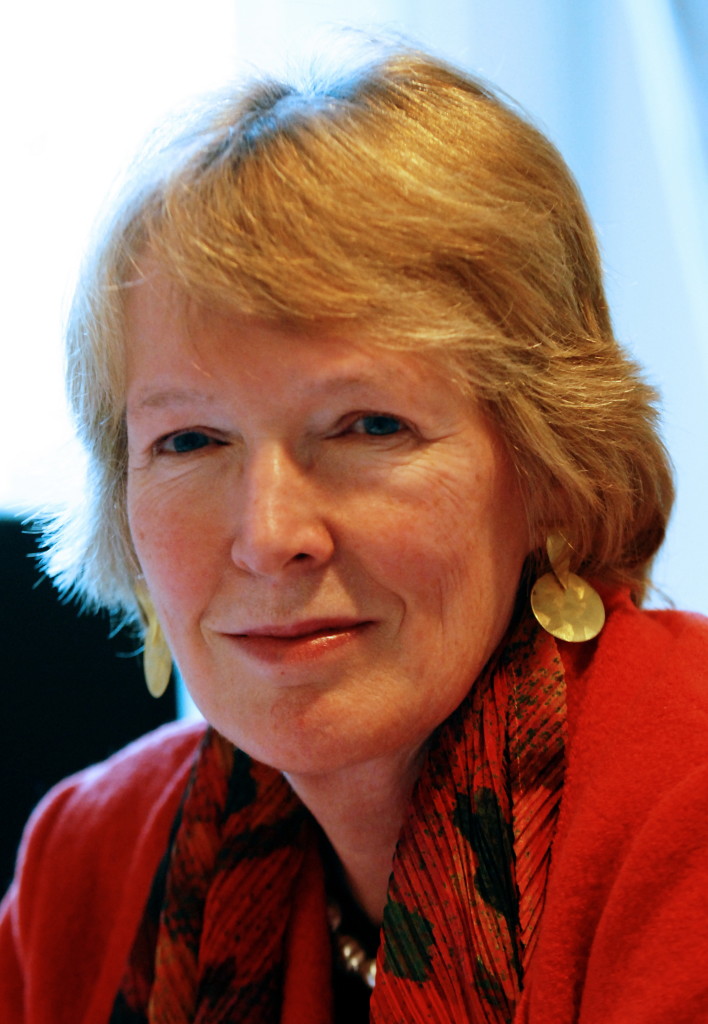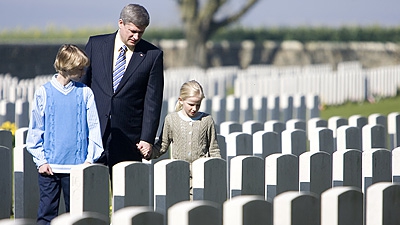‘Highlights reel: Margaret Macmillan on history’, Honest History, 20 July 2014
Canadian-born, now Oxford-based historian, Margaret Macmillan, has made a distinguished contribution to the literature of the Great War with her book, The War That Ended Peace: The Road to 1914. Less well-known is her The Uses and Abuses of History, first published in 2008 and based on lectures delivered at the University of Western Ontario in 2007.
Professor Macmillan talks at length about the book. The book was reviewed in The Guardian, The Telegraph and The New York Times. Some editions of the book have the title Dangerous Games. These highlights are from the e-book edition, published in 2010.
Professor Margaret Macmillan (picture: Rhodes Trust)
 Highlights
Highlights
General thoughts
Political and other leaders too often get away with misusing or abusing history for their own ends because the rest of us do not know enough to challenge them. (p. 33)
Bad history can demand too much of its protagonists, as when it expects them to have had insights or made decisions that they could not possibly have done. Should Europe’s statesmen in 1914 have foreseen the stalemate of the western front when virtually all their generals assured them that the war would be over quickly?
Bad history also makes sweeping generalisations for which there is not adequate evidence and ignores awkward facts that do not fit …
Bad history ignores … nuances in favor of tales that belong to morality plays but do not help us to consider the past in all its complexity. The lessons that such history teaches are too simple or simply wrong … We must contest the one-sided, even false, histories that are out there in the public domain. If we do not, we allow our leaders and opinion-makers to use history to boost false claims and justify bad and foolish policies. (pp. 36-37)
Victorian historians too often depicted the past as an inevitable progress leading to the glorious present when Britain ruled the world. And French and German and Russian and American historians did much the same thing for their nations’ stories. Like epic poems, their books were filled with heroes and villains and stirring events. Such histories, says Michael Howard, the eminent British historian, sustain us in difficult times, but they are “nursery history.”
The proper role for historians, Howard rightly says, is to challenge and even explode national myths: “Such disillusion is a necessary part of growing up in and belonging to an adult society; and a good definition of the difference between a Western liberal society and a totalitarian one – whether it is Communist, Fascist, or Catholic authoritarian – is that in the former the government treats its citizens as responsible adults and in the latter it cannot.” (p. 39)
Stories of past glories or of past wrongs are useful tools in the present, but they, too, often come at the cost of abusing history. History is also abused when people try to ignore or even suppress evidence that might challenge their preferred view of the past. (p. 69)
Foundation myths
Macmillan recalls the trip undertaken by Canadian prime minister, Stephen Harper, to France in 2007 to rededicate the Vimy Ridge memorial to the Canadian soldiers who died there in 1917. She notes Harper’s agenda at the time to shore up support for Canadian involvement alongside the United States in Afghanistan. ‘Every nation has a creation story’, he said, and Vimy was Canada’s.
Harper went on to tell living Canadians
that they had an obligation to remember the “enormity” of that sacrifice and the “enormity” of their own duty, which was “to follow their [the men of Vimy] example and to love our country and defend its freedom for ever”. And he urged his audience … to listen to the voices of the dead. “We may hear them say softly: I love my family, I love my comrades, I love my country, and I will defend their freedom to the end. (pp. 65-66) (Emphasis added.)
Prime Minister Harper at Vimy Ridge 2007 (picture: pm.gc.ca website)
 (Canadian-Australian comparisons can be instructive. On comparisons between Vimy and Gallipoli, see Chris Watters. Mr Harper’s speech also includes the line about Vimy that ‘there may be no place on earth that makes us feel more Canadian’, which may be compared with the claim of Australian War Memorial director, Brendan Nelson, that it was not until visiting the Australian War Memorial that one understood ‘what makes us tick as Australians’. On the rhetoric of obligation, see Australian Minister Ronaldson in 2014. On the rhetoric of whispered hints, see Australian Prime Minister Rudd in 2008 and 2010. On recent developments in commemoration in Canada, see the article by Yves Frenette.)
(Canadian-Australian comparisons can be instructive. On comparisons between Vimy and Gallipoli, see Chris Watters. Mr Harper’s speech also includes the line about Vimy that ‘there may be no place on earth that makes us feel more Canadian’, which may be compared with the claim of Australian War Memorial director, Brendan Nelson, that it was not until visiting the Australian War Memorial that one understood ‘what makes us tick as Australians’. On the rhetoric of obligation, see Australian Minister Ronaldson in 2014. On the rhetoric of whispered hints, see Australian Prime Minister Rudd in 2008 and 2010. On recent developments in commemoration in Canada, see the article by Yves Frenette.)
Teaching history
History is about remembering the past, but it is also about choosing to forget …
When people talk, as they frequently do, about the need for “proper” history, what they really mean is the history they want and like. School textbooks, university courses, movies, books, war memorials, art galleries and museums have all from time to time been caught up in debates that say as much about the present and its concerns as they do about the ostensible subject of history.
Educating the next generations and instilling in them the right views and values are things most societies take very seriously. (p. 111)
History is often used as a series of moral tales, to enhance group solidarity or, more defensibly in my view, to explain how important institutions such as parliaments and concepts such as democracy developed, and so the teaching of the past has been central to the debates over how to instil and transmit values. The danger is that what may be an admirable goal can distort history either by making it into a simple narrative in which there are black-and-white characters or by depicting it as all tending in one direction, whether that of human progress or the triumph of a particular group. Such history flattens out the complexity of human experience and leaves no room for different interpretations of the past. (p. 114)
More by the same author on history teaching.
(Margaret Macmillan, The Uses and Abuses of History, Profile Books, London, e-book edition, 2010; first published 2009; US edition, Random House, New York, 2009)


Leave a Reply
You must be logged in to post a comment.